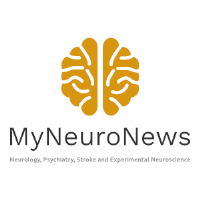The diagnosis of Functional Neurological Disorder (FND) is a complex process that involves a combination of clinical assessment, the exclusion of other neurological or medical conditions, and the identification of positive signs consistent with FND. It is not a diagnosis of exclusion, nor should symptoms be categorized as medically unexplained (MUS)[2]. A diagnosis should be made by a neurologist from positive signs/tests[2].
Clinical Assessment and Positive Signs
The diagnosis of FND involves a thorough clinical assessment that looks for specific patterns of symptoms or signs that are typical of the disorder. This includes motor and sensory symptoms, such as weakness, seizures, abnormal movements, and sensory disturbances[1][5]. Positive signs that are indicative of FND include Hoover’s sign for functional weakness, distractibility, and non-physiological findings during the examination[6][13]. The presence of these signs can help in making a positive diagnosis of FND.
Exclusion of Other Conditions
While FND is not a diagnosis of exclusion, it is important to rule out neurological or other medical conditions that could cause similar symptoms. This may involve a range of tests and investigations, such as blood tests, CT scans, MRI scans, and EEGs, to exclude conditions like stroke, multiple sclerosis, or epilepsy[2][4][8]. However, it is expected that these tests will generally be normal in cases of FND, as the disorder involves functional rather than structural problems in the nervous system[13].
Importance of Diagnostic Delivery
How a diagnosis of FND is delivered can significantly impact the patient’s understanding and acceptance of the disorder, which in turn can affect their engagement with treatment and overall prognosis[2][15]. It is crucial for the diagnosing clinician to communicate the diagnosis in a way that makes sense to the patient, explaining that the symptoms are real and potentially reversible, but stem from a functional disruption in the nervous system rather than structural damage[13][15].
Treatment Implications
Understanding the diagnosis of FND is also important for guiding treatment. Treatment options may include physical therapy, especially for movement or motor symptoms, psychotherapy for addressing underlying psychological factors, and sometimes medication to manage associated symptoms like pain or depression[11][15]. An integrated, multidisciplinary approach is often required, emphasizing the importance of a correct and clear diagnosis[3][11].
In summary, the diagnosis of Functional Neurological Disorder involves a combination of clinical assessment for positive signs, exclusion of other medical conditions, and careful communication of the diagnosis to the patient. It is a nuanced process that requires expertise in both neurology and psychiatry, with a focus on the patient’s individual symptoms and experiences.
Sources
[1] Functional Neurological Disorders (FNDs) – A-Z of Hospital Services https://www.sth.nhs.uk/services/a-z-of-services?id=115&page=293
[2] Diagnosis – FND Action https://www.fndaction.org.uk/diagnosis/
[3] Treatment for Patients With a Functional Neurological Disorder … https://ajp.psychiatryonline.org/doi/10.1176/appi.ajp.2017.17040450
[4] Functional neurologic disorder/conversion disorder – Mayo Clinic https://www.mayoclinic.org/diseases-conditions/conversion-disorder/diagnosis-treatment/drc-20355202
[5] Functional neurological disorder (FND) – NHS inform https://www.nhsinform.scot/illnesses-and-conditions/brain-nerves-and-spinal-cord/functional-neurological-disorder/
[6] Functional neurological disorders: acute presentations and … – NCBI https://www.ncbi.nlm.nih.gov/pmc/articles/PMC6334101/
[7] Current Concepts in Diagnosis and Treatment of Functional … – NCBI https://www.ncbi.nlm.nih.gov/pmc/articles/PMC7293766/
[8] Functional Neurologic Disorder https://www.ninds.nih.gov/health-information/disorders/functional-neurologic-disorder
[9] A practical review of functional neurological disorder (FND) for the … https://www.ncbi.nlm.nih.gov/pmc/articles/PMC7850207/
[10] Functional Neurological Disorder – FND Symptoms & Treatment https://rarediseases.org/rare-diseases/fnd/
[11] Treatment – FND Action https://www.fndaction.org.uk/treatment/
[12] Functional Neurological Disorder https://www.plymouthhospitals.nhs.uk/functional-neurological-disorder/
[13] Basics of Functional Neurological Disorder (FND) https://www.massgeneral.org/neurology/treatments-and-services/functional-neurological-disorder-basics
[14] The Diagnosis of Functional Movement Disorder – Practical Neurology https://practicalneurology.com/articles/2022-mar-apr/the-diagnosis-of-functional-movement-disorder
[15] Functional Neurological Disorder – Psychotherapy Service https://www.thewaltoncentre.nhs.uk/patient-leaflets/functional-neurological-disorder-psychotherapy-service/483843
[16] Functional Neurological Disorder – Physiopedia https://www.physio-pedia.com/Functional_Neurological_Disorder
[17] Treatment of Functional Neurological Disorders (FND) https://www.sth.nhs.uk/neurosciences/neurology/our-services/neurology-psychotherapy-service/treatment-of-functional-neurological-disorders-fnd
[18] Functional neurological symptom disorder (conversion disorder) in … https://www.uptodate.com/contents/functional-neurological-symptom-disorder-conversion-disorder-in-adults-terminology-diagnosis-and-differential-diagnosis

